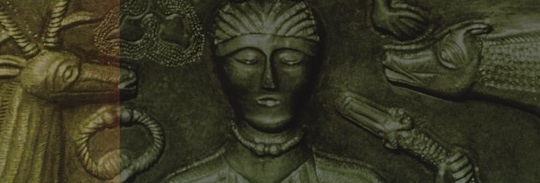
Emily Lyle introduces her new collection, Celtic Myth in the 21st Century: The Gods and their Stories in a Global Perspective.
Antlered humans, dragons, princesses, one-eyed giants, enchanted islands, transformations, transcendent states: this is part of the stuff of Celtic myth explored in this book by experts in the field. The story-making is evident and, in fine-tuned studies, Celtic Myth in the 21st Century demonstrates an awareness of the discourse of the individual tellers of the tales. Stories need no justification and can be enjoyed within themselves, and an especial pleasure is the rich vein of fantasy prominent in the Celtic corpus of material. How far do these mythic stories or ones like them extend? Some of the chapters draw upon the Indo-European dimension, with parallels especially from India.
My hope (as touched on in my own contribution) is that the book may prove to be one of the foundation studies that will make possible a deeper understanding of the myths of the Indo-European cultural world. As the result of centuries of scholarship, we know of the existence of a common origin for the Indo-European languages; it can certainly be argued that the mythologies of these linguistic groups have a common origin too. Studies along these lines have not always carried conviction, probably because they failed to grasp the nettle of the profound difference between an oral society in which the mythology must have originated, and a literate one. Indo-European mythology is not a ‘religion of the book’, but stems from a preliterate stage when individual and group thinking, and biological memory, were the only means of organising and storing cultural constructs. Categories were based on the human body and human kinship and spatial structures; complex patterning was arrived at through correlative thinking, which provided a universe of thought where everything fitted together. Within a universe of this sort, it is claimed, the gods of mythology came into being and played key roles.
Emily Lyle is an Honorary Fellow in the department of Celtic and Scottish Studies at the University of Edinburgh.


